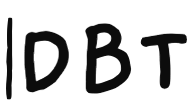You want to succeed, surround yourself with the right kind of people who will support and encourage you all the way. Be with people who have utmost conviction and patience. The battle is never lost until you’ve abandon your vision. But what if you’re really exhausted physically, mentally, and most of all emotionally? Here are some sources of motivation to prompt you in reaching the peak of accomplishment.
Let me share with you one of my favorite quotes, as stated in that quote, there are three key factors to achieve massive success in your life:
Never ever think of giving up. Winners never quit and quitters never win. Take all negative words out of your mental dictionary and focus on the solutions with utmost conviction and patience. The battle is never lost until you’ve abandon your vision.
https://psychcentral.com/health/dbt-skills-therapy-techniques

Growth
Dialectical behavioral therapy (DBT) works around developing four major skills: mindfulness, distress tolerance, interpersonal effectiveness, and emotional regulation.
Dialectical behavioral therapy (DBT) is a therapeutic approach that’s been found effective for managing mental health conditions like personality disorders and eating disorders.
But understanding and developing DBT skills can actually benefit anyone who wants to cope better with life’s challenges in general.
What is dialectal behavioral therapy (DBT)?
DBT builds upon the concepts of cognitive behavioral therapy (CBT). It helps you develop concrete skills that you can use to cope when life feels overwhelming.
The word dialectical in DBT comes from the term dialectics. In DBT, this means that everything is composed of opposites, and those opposites can co-exist.
The DBT approach is based on the belief that change and relief come from accepting opposing emotions, thoughts, and behaviors.
DBT was originally developed to treat borderline personality disorder (BPD) and for people with suicidal thoughts or engaging in self-harm behaviors.

Emotional Art
DBT skills are aptitudes and tools you can develop to better cope with all types of challenges.
A dialectical behavioral therapist can help you learn to replace ineffective behaviors and thoughts with more effective ones so you can manage life’s stressors and difficult emotions.
The main goal of DBT is to help you develop four major skills:
- mindfulness or being in the present
- distress tolerance or reacting less often or less intensely to distress
- interpersonal effectiveness or having more satisfying personal interactions
- emotional regulation or recognizing and controlling your emotions
You can use these DBT skills in all aspects of your life, particularly those you may find more challenging.







